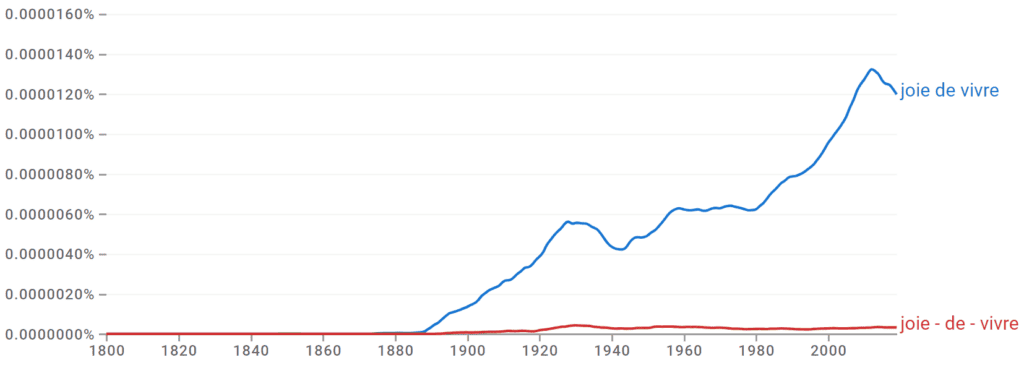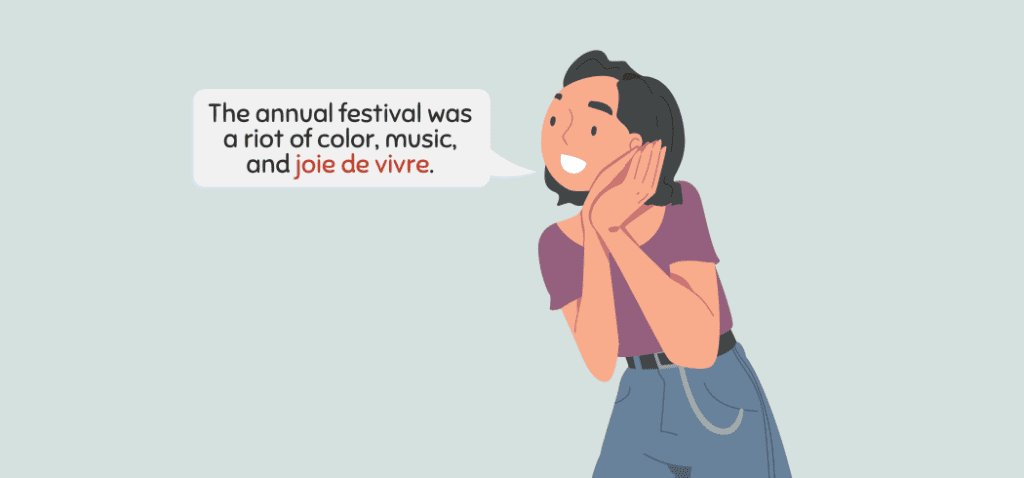We’ve all felt those moments when we have an almost unfathomable burst of happiness, a radiant joy that seems to bubble up from the depths of our very being. And the French, bless their hearts, have a perfect phrase to encompass this feeling—joie de vivre. But how do you say it, and how do you use it? I’ll show you!
The Meaning of Joie de Vivre

Joie de vivre, a phrase we borrowed from the French, translates to joy of living in English. But it’s not just about being happy; joie de vivre represents a cheerful zest for life that some people just seem to be full of. I am a self-admitted grump, so I don’t really understand how this feels.
But it’s the kind of joy that makes you want to swing from the chandeliers, throw open your windows, and shout, “Life is wonderful!” to the world below.
Just think for a second about a person you’ve met that seemed so blissfully happy and positive that it almost made you cringe. They’re experiencing joie de vivre. I had a science teacher like that in high school, and I, being an unscrupulous non-morning person, hated walking into her class every day.
Joie de Vivre or Joie-de-Vivre?

So, should there be hyphens or not? I know it’s a bit of a puzzle because you’ll find both versions floating around out there. The original French phrase is written without hyphens, as joie de vivre. But English likes to get creative! While some English dictionaries include hyphenated versions, the unhyphenated form is generally more common. So, let’s just stick with joie de vivre, okay?
Joie de Vivre Pronunciation
Like any French phrase, pronouncing joie de vivre can seem daunting, but it’s pretty simple once you break it down like this zhwah duh veev. It’s like a mini French lesson wrapped in a burst of happiness!
Joie de Vivre Origin and Etymology
The expression joie de vivre is, unsurprisingly, from the French language. Joie means joy, de is a preposition roughly translating to of, and vivre means to live. So, joie de vivre = joy of living. It’s a phrase that perfectly encapsulates the French philosophy of relishing life’s simple pleasures, and it’s been a small part of English since the 19th century.
Using Joie de Vivre in a Sentence

- My sister’s infectious laughter and intense joie de vivre captivated everyone at the birthday party.
- After finally retiring, my dad traveled the world, living his enchanting joie de vivre.
- The annual festival was a riot of color, music, and joie de vivre.
- My grandmother, even in her old age, is full of genuine joie de vivre, and I can only hope to be half as happy as she is.
- The coastal city is known for its sunshine, beaches, and the innate joie de vivre of its visitors and residents.
Enjoy Life!
And voilà! You now have joie de vivre in your vocabulary, right there and ready to express those moments of exuberant joy. We might not all be flinging open our windows and shouting our jubilation to the world, but we can at least appreciate those moments when life feels truly, deeply wonderful.
If you’d like to discover even more cool French loanwords and phrases like this, have a quick peek at some of my other grammar guides!
